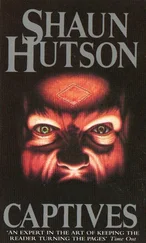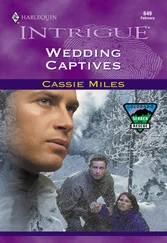Norman Manea - Captives
Здесь есть возможность читать онлайн «Norman Manea - Captives» весь текст электронной книги совершенно бесплатно (целиком полную версию без сокращений). В некоторых случаях можно слушать аудио, скачать через торрент в формате fb2 и присутствует краткое содержание. Год выпуска: 2014, Издательство: New Directions, Жанр: Современная проза, на английском языке. Описание произведения, (предисловие) а так же отзывы посетителей доступны на портале библиотеки ЛибКат.
- Название:Captives
- Автор:
- Издательство:New Directions
- Жанр:
- Год:2014
- ISBN:нет данных
- Рейтинг книги:3 / 5. Голосов: 1
-
Избранное:Добавить в избранное
- Отзывы:
-
Ваша оценка:
- 60
- 1
- 2
- 3
- 4
- 5
Captives: краткое содержание, описание и аннотация
Предлагаем к чтению аннотацию, описание, краткое содержание или предисловие (зависит от того, что написал сам автор книги «Captives»). Если вы не нашли необходимую информацию о книге — напишите в комментариях, мы постараемся отыскать её.
Captives
This is a moving account of a country shaken by communism and anti-Semitism and haunted by recent atrocities, from "a distinguished writer whose vision of totalitarianism is close to Kafka's cloudy menace, universal yet internalized" (Richard Eder,
).
Captives — читать онлайн бесплатно полную книгу (весь текст) целиком
Ниже представлен текст книги, разбитый по страницам. Система сохранения места последней прочитанной страницы, позволяет с удобством читать онлайн бесплатно книгу «Captives», без необходимости каждый раз заново искать на чём Вы остановились. Поставьте закладку, и сможете в любой момент перейти на страницу, на которой закончили чтение.
Интервал:
Закладка:
He would also tell you the story that he forgot to leave behind in your room.
It happened long ago and far away, when everyone should have been glad, yet too many have managed to forget. Remembering the images is exhausting. The narrator grows tired quickly, too. The chroniclers write that back then arrogance had served the movements of the day and had been unleashed onto humanity. The cry of hoarse voices, suspicious people who hunted their own kind, suspected people and banished them into foreign lands. . into an unknown land where the cemetery would be their final home. Gathered into prison camps, far from the rest of humanity, they saw only barbed wire, trenches, common graves, common dormitories, common crematoria.
The few survivors were cadavers on liberation day. Immense beards, wild hair, ghostly faces. Rags hung off their skeletons.
Their perplexity continued for minutes and hours and days. They looked at the tanks covered with leaves and tree branches and at the incomprehensible smiles on the faces of their liberators. Some of them rushed to the gun turrets of the tanks to scatter the leaves that masked a great red star. The gates were thrown wide. They raised their rickety arms to feel the soldiers’ bodies. They saw everything clearly , they heard the cries of happy beasts; they danced for joy: unanimous madness. They crowded toward the gates, toward the hands of the saviors. Everything was seen with limpid clarity. There was no room for doubt.
They sensed the smell of burning clothing. They saw how everyone was throwing their striped clothes into the heap, which smoldered at first and then rose to a high flame. They saw, heard, felt, and understood everything that was happening. It couldn’t be otherwise, and in the following years — those shameful years of reintegration — they showed no trace of madness. They had endured, first clinging to the hope of such a miracle, then out of habit. Eventually, the rumors that spread during the final months would justify the panic on their executioners’ faces.
The light of the survivors’ eyes had grown brighter, reflecting the tired smiles of the liberators with their short haircuts and the peculiar commands that were issued in a noisy language — their uniforms dusty, their rifles and voices coated with dust.
They stared at youths that spilled out of the tanks like entrails. They tried moving slowly. For several moments or hours or days they remained well-behaved and tame — staring at the metallic letters strung above the iron curtain of the gate, sounding out the words that they had repeated so many times: “To each what he deserves.” They slipped by the others, who weren’t paying attention, and made for the gate. The disorder of collective joy protected their flight.
They went quietly for about a hundred paces. They seemed calm: three yellow cadavers with eyes bulging from their heads, their chins invaded by dirty hair gleaming with white strands. Just a bit more, and then suddenly they began to run, all three of them ran automatically, just as they had moved harmoniously before, without words, in terror that this fairy tale would fall apart. The perplexity that had affected each of the fugitives might have been their only sign of madness — hard to explain in the end, except through the perfectly aligned mechanism that was driven by their separate instincts.
They ran for a long time without looking back, without stopping until they came to the edge of a forest. They entered the forest panting, without slowing their frantic pace, harmonizing their slow, heavy steps. Fatigue and the coolness of the woods struck them simultaneously, and the father of the one running away ran on while sleeping, like an automaton.
He woke with the sun beating down on him at the edge of the forest. He had crossed the cool forest like a sleepwalker, as he told it. He had slept under the trees, dreaming in the shadows and shades of green that surrounded him. He had lifted his left leg, lowered it, then his right and lowered it, pummeled the air with his hands — first with the left, then with the right — following the same cadence of his stride, aligning his steps, one after the other, feeling and dreaming the coolness of the forest, and it seemed as if he had crossed the forest in a single leap.
They ran, they rested. They ran again. They sat on the grass or on tree trunks, without speaking, terrified of any omission or word that would reveal their humanness, weaken them, knock them down. They halted to rest and then ran again for almost thirty kilometers, until dusk, when the first houses popped up on the edge of a hill. The beginning of a village, or the remains of a village, or a lonely hamlet. They seemed to simultaneously understand that they would not pass beyond the first house, that they would fall down exhausted by their long race and terror. At this, their movements tripled, spontaneously: the only trace of the passing madness of the three men who were safe and sound. They acted as one, instinctively. They didn’t have time to think or speak. When they finally entered the house, it had grown dark.
They saw the women: shadows spread on the floor. They didn’t come near the women. They didn’t even show any trace of amazement or violence or timidity. There were five or six women. They each approached one particular woman, and took her by the hand. Silent, calm gestures. Even, monotonous breaths. Suddenly, one of the men gave a start. He stopped himself. He passed his hand one more time over the woman’s back, and then he cried out. He recognized her and himself. He wanted to howl for a long time, till the walls fell down. He passed his hand again over the woman’s back, he howled again — which is to say, he wanted to howl again, but nothing came from his throat except a suffocated growl. The others looked at him indifferently. He shoved them. He hit them like a madman. These were the women who had escaped two days ago. They had heard about them in the men’s camp. This woman was his wife. He had not seen her for three years. He had believed she was dead. He had forgotten her, obliged himself to forget her forever. The woman had a little growth on her back, which grew like a round acorn, and was only known to him.
The sluggishness of dusk. The soft walls close in. Soon silence will descend. We will be able to fall asleep, far from stories of the past, alien to our coincidental sisters, as you weren’t able to do: so alive you remain, real and eternal.
The son wanted to tell the story of the father’s escape during your incestuous night, but he wasn’t able. He already knew about Captain Zubcu, there was no more to add. Guilty legends do not bring ease. The dark will receive him soon. Lethe will bring to rest the absent one, far from the empty days through which no one passed, ever.
“I”
Black air, leftover twilight, and the wan ribbon of street: blinded by headlights and honking, pedestrians momentarily crossed paths. As in wartime, the neighbors’ radio played an English announcer’s voice — tuned low. Suspended over the street, the narrow room with fuzzy walls: a gentle kick would have gone right through. The objects cowered. The scaly, reptilian bed. The curtain of coiled worms. The nightlight: the throat of a creature ready to screech. Darkness: obscuring forms, flattening volumes. My body wedged between table and piano. Closed my eyes and felt the piano’s edge. Passed a hand over the ebony bars. A finger’s pressure made a thick sound. Another: thin. Piano keys: black and white.
Had sprawled on top of papers and laundry, to sleep: perchance to. . wake as another, to wake no more. Got up. Stepped in front of the bookcase. A shelf lamp cast light on the spines: double titles, as if the music teacher always bought two copies each. Found a book with a familiar name, looked at its letters, repeated the title several times. Had read this book once. Knew whole passages by heart back then. On the table, a folder with papers. Opened it. A typed letter, a carbon copy. Another copy of a different letter typed on the same machine. Another letter: awkward masculine script in a trembling hand. A story in typescript. Took the folder and the book from the shelf. Put them together, on the bed. It was peaceful in the apartment. Outside, the cars kept up hysterical alarms. The neighbors’ radio went on playing forbidden news.
Читать дальшеИнтервал:
Закладка:
Похожие книги на «Captives»
Представляем Вашему вниманию похожие книги на «Captives» списком для выбора. Мы отобрали схожую по названию и смыслу литературу в надежде предоставить читателям больше вариантов отыскать новые, интересные, ещё непрочитанные произведения.
Обсуждение, отзывы о книге «Captives» и просто собственные мнения читателей. Оставьте ваши комментарии, напишите, что Вы думаете о произведении, его смысле или главных героях. Укажите что конкретно понравилось, а что нет, и почему Вы так считаете.












